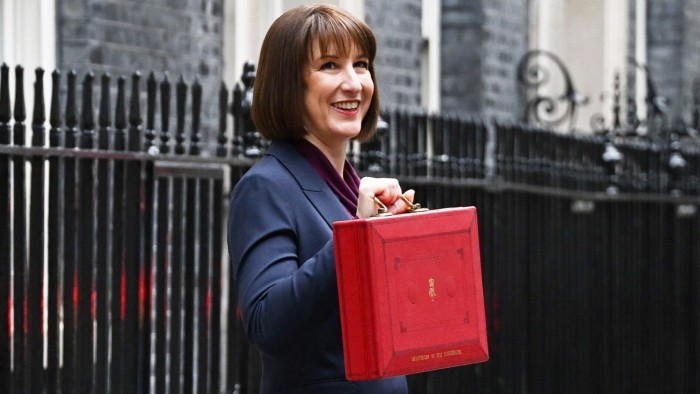Unlock the Editor’s Digest for free
Roula Khalaf, Editor of the FT, selects her favourite stories in this weekly newsletter.
Rachel Reeves is examining reforms to her budget regime to avoid another unexpected springtime fiscal repair job as she comes under mounting investor pressure to curb the volatility of UK economic policymaking.
The UK chancellor is considering recommendations by the IMF that it said aim to “reduce pressure for frequent fiscal policy changes” as she doubles down on her vow to hold just one fiscal event a year, according to people familiar with Treasury discussions.
The Fund in May suggested changes to ensure small breaches of the rules do not force “corrective fiscal action” between budgets. It said alternatively the UK could assess compliance with the fiscal rules only once a year, instead of twice.
“This is something the Treasury is looking at — it has to be done,” said one City figure. “Going every six months bouncing around, forecast to forecast, is no way to run fiscal policy, given the vicissitudes of a deeply unstable global economy. Bond markets would be more than fine [with reforms]. They’d welcome it.”
Reeves entered 11 Downing Street pledging to make fiscal policy more stable by holding only one budget each year, rather than two. But she left in place a legal requirement for the Office for Budget Responsibility, the fiscal watchdog, to produce two fiscal and economic outlooks annually.
The decision backfired earlier this year, when the OBR forecast a relatively small £4bn overshoot to the Reeves’ key fiscal target, forcing her into a messy course-correction in the March Spring Statement.
The fiscal event came less than half a year after her blockbuster £40bn tax-raising October Budget, stoking uncertainty in markets.
Reeves is now preparing the ground for a big package of tax rises in the Autumn Budget, with analysts warning that the hole in the government’s finances could be more than £20bn.
But the Treasury does not want to be forced to present another round of changes months later if the OBR judges that Reeves’ plans have been blown off course again. Labour’s recent U-turns over welfare reforms have added to market jitters about the government’s ability to stick to its plans to rein in spending.
“It’s in everyone’s interests that there is one proper fiscal event a year,” said one person familiar with the discussions.
The IMF in May said it welcomed the Treasury’s commitment to hold a single annual fiscal event as it gave Reeves cover to adjust her rules. It mooted a range of options that are now under consideration in the Treasury.
One option would bring forward existing provisions intended to quell the need for the Treasury to take remedial action in the case of small breaches of the fiscal rules between annual budgets.
This measure already exists in Reeves’ framework, which allows the Treasury to temporarily hold off responding to a fiscal overshoot of less than 0.5 per cent of GDP and wait until the next formal fiscal event before taking action.
But the buffer kicks in only later in the parliament, meaning it would not help Reeves as soon as next spring.
Another idea put forward by the IMF would entail the OBR assessing compliance with the fiscal rules only once a year at budget time, rather than in both the spring and autumn.
James Nation, managing director at consultancy Forefront Advisers and a former Downing Street adviser, said: “Moving to one OBR forecast is an under-appreciated card the chancellor could play to buy more space. She can use the cover of the IMF to do so.
But he added: “Making use of any greater flexibility though carries risk, particularly if markets think it will result in permanent additional borrowing.”
Reeves hinted that she would look at changes in an interview with the Guardian earlier this month, as she noted that the IMF had made recommendations on how to deliver better fiscal policymaking and “obviously I take those seriously.”
Government figures insisted the chancellor would not introduce any reforms that loosened her rules to permit a boost to borrowing. Any changes to the regime at Reeves’ Budget this autumn would imply tweaks to a framework put in just a year ago.
The chancellor has two key rules: one requiring her to push the current budget into surplus by 2029-30, and the other requiring debt to decline as a share of the economy by that year.
The Treasury said: “Our fiscal rules are non-negotiable. They are the basis of the stability which underpins growth, and we have shown at the Autumn Budget and Spring Statement that we will meet them.
“The first bill passed by this government included the fiscal lock, which prevents the sidelining of the OBR and demonstrates that this government will never play fast and loose with public finances.”



